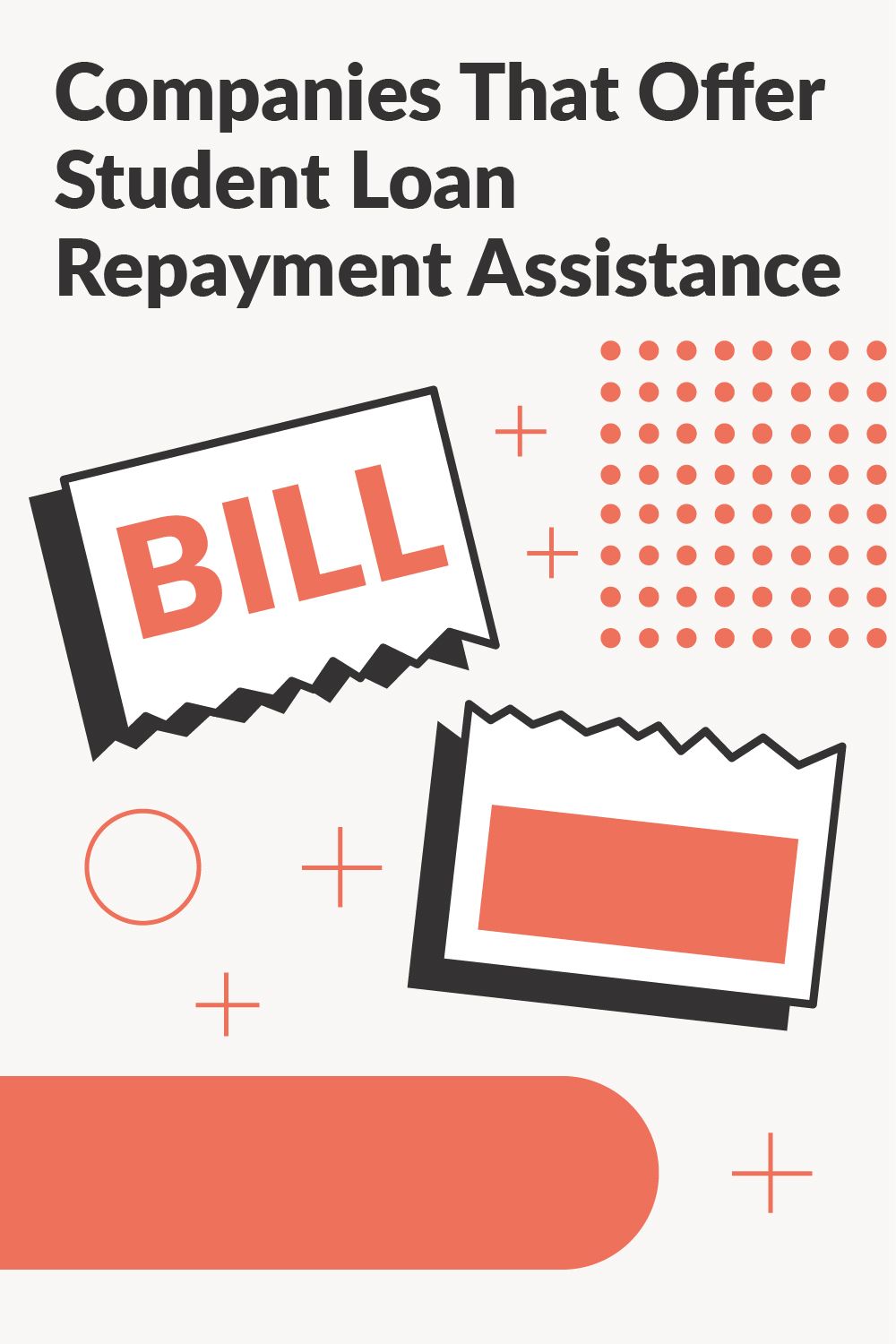
A growing trend in the last few years has been for employers to offer student loan repayment assistance to employees as a benefit. Unlike tuition reimbursement (which has been around for years), student loan repayment assistance is a relatively new concept, but one that is gaining traction.
According to the Society For Human Resource Management, about 3% of companies offered some type of assistance program to help employees pay down their student debt. But one thing is for sure, that number is growing.
Given the fact that roughly 43 million people have student loans, and that the U.S. Workforce is roughly 144 million people, that means almost 1 in 3 workers has student loans. For employers, helping their employees get out of student loan debt just makes sense.
And according to a recent survey from LendingTree, 45% of employees would rather have a student loan repayment assistance program over a 401k. For younger employees (18-24), that number is even higher at 54%. Even more startling, almost 53% of employees would prefer to have student loan repayment assistance over additional vacation.
So let's dive in and see what this trend is all about.
Don't Like To Read? Watch The Video
Covid-19 Upgrades
Due to the Coronavirus pandemic, employers are now allowed to use pre-tax dollars for employee repayment assistance up to $5,250. This provision is in effect through 2025.
This is a great tax-break for both employers, and now employees who receive these funds. Previously, employer repayment assistance was considered taxable income.
We've seen a large increase in the number of companies offering student loan repayment benefits since this provision went into effect.
What Is Student Loan Repayment Assistance?
Student loan repayment assistance is an employer benefit that is exactly what it sounds like: your employer will pay off (a portion) of your student loan debt.
Every plan is structured a little differently, but there are a few key themes:
- Amounts vary from as low as $500 to $10,000 (maybe even more), and some employers even offer these amounts annually
- Payments are sometimes made directly to the lender (so it's not like a signing bonus and you may not get the cash yourself, but you might)
There are also more creative programs, such as making additional 401(k) contributions for those paying off student loans or allowing employees to cash out PTO days and sending the money to student loan issuers.
Student Loan Repayment Assistance vs. Tuition Reimbursement
Before student loan repayment assistance, there were (and still are) tuition reimbursement programs. These are programs that employers offer that provide reimbursement for employees who are going to school.
Typically, for these programs, the employee has to be an employee before starting school, has to pay for the program/class out of pocket, and the employer will reimburse all or part of the tuition paid.
These programs are beneficial for employees who need continuing education to advance, want to go back to school, employ many younger-adults who may be considering school for the first time, or employ many non-traditional students.
However, for employees who took the "traditional" path of graduating high school, going to college, and then entered the workforce, tuition reimbursement plans miss the mark. I think many companies don't realize that they may actually be frustrating employees because they can see this program exists, but are sitting with their loans and can't take advantage of it.
Hopefully more employers follow the companies below into offering student loan repayment assistance to their employees.
These Companies Offer Student Loan Repayment Assistance
We are going to continue to strive to update this list of companies. It's difficult because it's not always easy to find who is offering repayment assistance programs.
If you know of an additional program, please share it with us in the comments so we can include it in this list.
Here are the companies that offer student loan repayment assistance, and the amount they disclose to offer:
Company Name | Amount | Notes |
|---|---|---|
Adidas | $1,200/yr | Paid as $100/mo |
Aetna | $2,000/yr | Matching contribution of $2,000/yr, up to $10,000 (half for part-time employees) |
Ally Financial | $1,200/yr | Paid as $100/mo up to $10,000 |
American Family Insurance | $1,200/yr | Paid as $100/mo, up to $10,000 |
Andersen Global | $1,200/yr | Paid as $100/mo for 5 years, then a lump $6,000 at the 5 year mark. Must work 20 hours per week or more. |
Carhartt | $600/yr | Paid as $50 per month, $6,000 lifetime cap |
Carvana | $1,000/ yr | Cell |
Chegg | $1,000/yr | No limit on years |
ChowNow | $500/yr | Operates as a matching contribution |
Common Bond | $1,200/yr | No lifetime max |
Connelly Partners | $1,200/yr | Paid as $100/mo, with a 5 year cap of $5,000 and bonus $1,000 in year 6 |
CVP | $1,200/yr | Paid as $100 directly to the loan servicer. Must work 30 hours per week. |
Estee Lauder | $1,200/yr | Paid as $100/mo, up to $10,000. Must work for 1 year to be eligible |
Fidelity | $2,000/yr | $2,000/yr for up to 5 years |
First Republic Bank | $2,400/yr | Starts at $100 a month for the first year of employment, $150 a month for the second year, and $200 year three and beyond. No cap. |
Freddie Mac | $1,800/yr | $9,000 lifetime max |
The Goddard School | $1,200/yr | 20% of your student loan payment, up to $100/mo. No cap. |
$2,500 | Paid as a match to employee payments, no cap reported | |
Gradifi | $3,000/yr | Paid as $250/mo up to $10,000 |
Honeywell | $1,800/yr | Paid as $150/mo, up to $10,000 |
Hulu | $1,200/yr | Paid as $100/mo, $6,000 lifetime max |
Kronos | $500/yr | |
LendEDU | $2,400/yr | Paid as $200/mo, with no cap |
Live Nation | $1,200/yr | $6,000 lifetime max |
Lockheed Martin | $1,800/yr | Paid as $150/mo, $9,000 lifetime max |
Martin Health Systems | $2,000/yr | |
Natixis Global Asset Management | $1,000/yr | Paid as $83.33/mo, up to $10,000 |
New York Life | $2,040/yr | Paid as $170/mo, up to 5 years |
Nvidia | $4,200/yr | Paid as $350/mo, up to $30,000 |
Peleton | $1,200/yr | Paid as $100 a month |
Penguin Random House | $1,200/yr | Paid as $100/mo, $9,000 lifetime max |
PowerTex | $1,200/yr | Paid as $100/mo for up to 6 years |
Price Waterhouse Coopers (PwC) | $1,200/yr | Paid as $100/mo, up to $10,000 |
Staples | $1,200/yr | Paid as $100/mo, up to $3,600 |
SoFi | $2,400/yr | Paid as $200/mo |
Terminix | $600/yr | Paid as $50/mo, no lifetime max. Must earn under $150,000 annually |
Tuition.io | $1,200/yr | Paid as $100/mo |
U.S. Government | $10,000/yr | Up to $10,000/yr for a maximum of $60,000. Each department (DOJ, State, VA, SEC, DOD) maintains specific individual requirements |
Western Union | $600/yr | Paid as $50/mo |
Some companies have partnered with lenders to offer special discounted interest rates on refinancing. We didn't include those as part of this because refinancing a student loan is not for everyone.
Conclusion
If your company offers any type of student loan repayment assistance program, you need to be taking advantage of it. If they don't, you should ask your HR or management to consider it.
Here's how you sell it. Many companies are finding it's a great way to retain young talent. On the flip side, employers are able to trim benefits that aren't used often (maybe a tuition reimbursement plan) and can put those resources towards a more beneficial program.
Also, consider reaching out to your U.S. Representative and encourage them to make this a tax-free benefit. That would help you (the borrower), and would likely incentivize more companies to participate as well.
Regardless of whether your employer offers these plans or not, hopefully we see more of them coming in the future.

Robert Farrington is America’s Millennial Money Expert® and America’s Student Loan Debt Expert™, and the founder of The College Investor, a personal finance site dedicated to helping millennials escape student loan debt to start investing and building wealth for the future. You can learn more about him on the About Page or on his personal site RobertFarrington.com.
He regularly writes about investing, student loan debt, and general personal finance topics geared toward anyone wanting to earn more, get out of debt, and start building wealth for the future.
He has been quoted in major publications, including the New York Times, Wall Street Journal, Washington Post, ABC, NBC, Today, and more. He is also a regular contributor to Forbes.
Editor: Clint Proctor Reviewed by: Ashley Barnett
